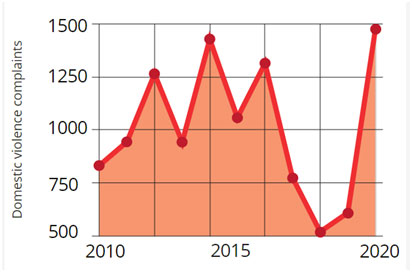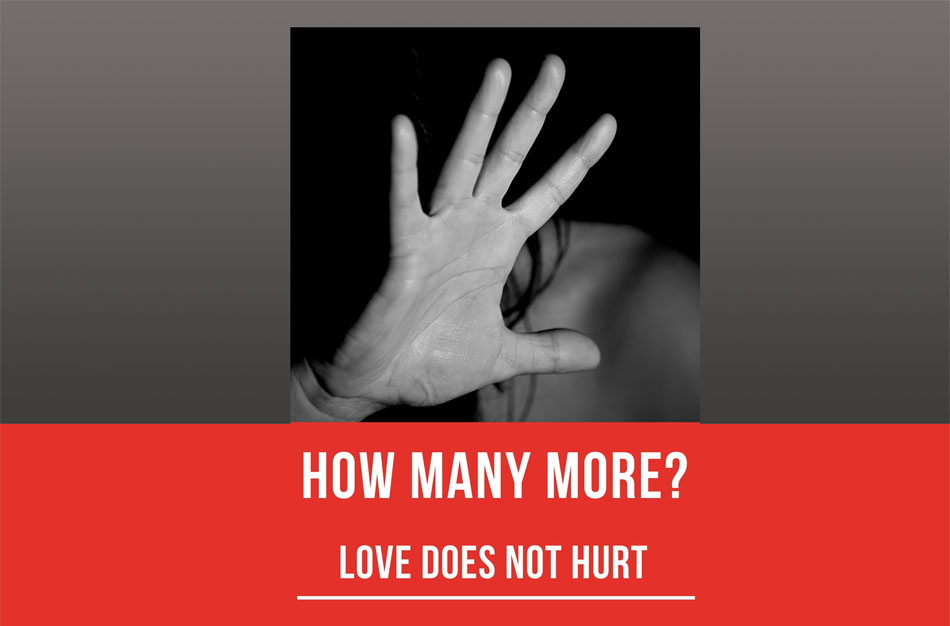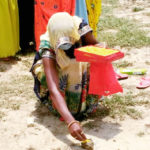Apart from creating a huge impact on all the sectors of human activities the Covid-19 pandemic has also brought unprecedented changes in our lives. The pandemic has created a whirlwind in the most drastic ways especially in the lives of women living behind closed doors. Though women are the crux of any family, but across the globe they are most affected in myriad ways from managing extra household work to additional child care duties, balancing the home and work front and dealing with various mental dilemmas and tortures like that of (increased cases of) domestic violence amidst this pandemic.
Several studies in past have shown that women of the family are most often the caregivers and have more so played the role of nurturers in times of crisis and adversities since the beginning. Unfortunately, the same women also face the brunt of verbal, physical, emotional, mental and sexual abuse and other forms of deprivation and discrimination both inside and outside their homes. In the Protection of Women from Domestic Violence Act in India (2005), domestic violence is defined by Section 3 of the Act as "any act, omission or commission or conduct of the respondent shall constitute domestic violence in case it:
- harms or injures or endangers the health, safety, life, limb or well-being, whether mental or physical, of the aggrieved person or tends to do so and includes causing physical abuse, sexual abuse, verbal and emotional abuse and economic abuse; or
- harasses, harms, injures or endangers the aggrieved person to coerce her or any other person related to her to meet any unlawful demand for any dowry or other property or valuable security; or
- has the effect of threatening the aggrieved person or any person related to her by any conduct mentioned in clause (a) or clause (b); or
- otherwise injures or causes harm, whether physical or mental, to the aggrieved person."


Source: The Hindu 2010-2020 (India)
Indian women filed more domestic violence cases in the first four phases of the lockdown which is record higher in comparison to the cases reported in the last 10 years. Ironically, in India, 86% of women who experience domestic violence do not seek help and 77% of victims did not even mention the incidents to anyone. In 2020 itself between March 25 and 31 May, there were 1477 complaints of domestic violence made by women. This 68 day period recorded more complaints than received between March and May in last 10 years!
According to the National Commission for Women, among the 14.3 % of victims who sought help, only 7% reached out to police, doctors, lawyers and/or counsellors. More than 90% of the victims sought help from immediate family members.
During the ‘new normal’ phase of ‘stay at home/physical-distancing’, these invisible sufferers became the worst affected more so due to the closure of courts and other legal centres, which made it even more difficult for women to reach out for their protection.
Amidst this lockdown, with the lack and loss of job and employment, the male members of the family have often resorted to violence owing to lesser control over economic resources and security. On the other hand, employed women in the family were better off than the women with no employment or financial security. Unemployed women were most vulnerable to violence and abuse in the hands of their spouses or other male members of the family. Moreover, cases of marital rapes and sexual violence have also spiked up. There also had been a surge in the usage of porn and other online illicit dating activities among the married men.
This crisis has further exposed the glaring gender disparity through house hold work and other domestic chores. In this patriarchal society, domestic work is associated with the ‘female’ members of the family, and with the absence of domestic help, the majority of the domestic work had fallen upon the women. Though in many cases, the men had been forthcoming in sharing the household duties and other basic functions of the home at times, but the child-care duties and other care giving function still lay with the women. The closures of schools and other day-care child centres, women have been overburdened with the responsibilities the house, children and/or aging parents, which took a toll on their physical as well as mental health. The added stress of balancing work, looking after the kids, supervising their online classes, cooking and cleaning led to the deteriorating mental health of women.
The closures of schools and other day-care child centres, women have been overburdened with the responsibilities the house, children and/or aging parents, which took a toll on their physical as well as mental health.
One in every 3 women worldwide experience physical or sexual abuse and this pandemic has made the matter worse. Though women report about their abuse, but majority of the cases go unreported in the fear of shame, embarrassment and societal stigma. Consumption of substance and/or alcohol by the men in families has acted as a precursor to the increase of abuse on women in the household. Men have often resorted to sudden violent rage on their spouses and children under the influence of alcohol or in the want of alcohol or other substances. The stress economic instability and insecurity has added fuel to the problem and given rise to what we call the ‘Shadow pandemic.’ We need stringent measures to counter the issue. UN Women has been working on the prevention of violence and access to essential services such as health, justice, policing, social services helplines and coordination of these services to provide support to those who have experienced violence.
If you are a woman and reading this, remember –
- This is not your fault. You should seek immediate help from your nearest police station or any legal centre without feeling shame, guilt or embarrassment.
- Bearing with the abuse/ abuser only adds up to the problem. Call out the abuser.
- If you are at risk and are unable to reach out to anyone from your house try going to your nearest grocery, chemist or any store to call someone you trust and inform them.
- You can also reach out to the National Commission for Women and dial their Whatsapp hotline no – 7217735372
- Remember, nothing is more important than your safety, well-being and mental health.
References
Shah, Vandana (2020), “Divorce, Law, Order and Justice”, The Leaflet, India, 19 April, 2020
Radhakrishnan V., Sen S., Singaravelu N., (2020), “Data: Domestic violence complaints at a 10-year high during COVID-19 lockdown”, The Hindu, 22 June, 2020.
Singal, Ritu (2020), “Domestic Violence Problems and Solutions by Ritu Singal”, Strikingly, Chandigarh, 10 July, 2020
Naidu, Prasant (2020), “#ActAgainstAbuse” Substack, India, 18 September, 2020
Singh, Smita (2020), “Domestic violence: Still a reality in modern day India”, National Herald, New Delhi, 29 September, 2020
Guest Writer
Ms. Shyamashree Roy is an Assistant Professor of Political Science in Shahid Matangini Hazra Government College for Women, West Bengal.





